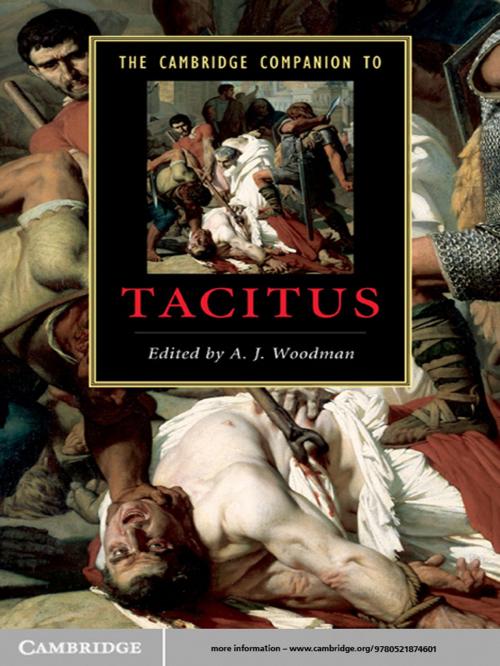The Cambridge Companion to Tacitus
Nonfiction, History, Ancient History, Fiction & Literature, Literary Theory & Criticism| Author: | ISBN: | 9781139801607 | |
| Publisher: | Cambridge University Press | Publication: | January 21, 2010 |
| Imprint: | Cambridge University Press | Language: | English |
| Author: | |
| ISBN: | 9781139801607 |
| Publisher: | Cambridge University Press |
| Publication: | January 21, 2010 |
| Imprint: | Cambridge University Press |
| Language: | English |
Tacitus is universally recognised as ancient Rome's greatest writer of history, and his account of the Roman Empire in the first century AD has been fundamental in shaping the modern perception of Rome and its emperors. This Companion provides a new, up-to-date and authoritative assessment of his work and influence which will be invaluable for students and non-specialists as well as of interest to established scholars in the field. First situating Tacitus within the tradition of Roman historical writing and his own contemporary society, it goes on to analyse each of his individual works and then discuss key topics such as his distinctive authorial voice and his views of history and freedom. It ends by tracing Tacitus' reception, beginning with the transition from manuscript to printed editions, describing his influence on political thought in early modern Europe, and concluding with his significance in the twentieth century.
Tacitus is universally recognised as ancient Rome's greatest writer of history, and his account of the Roman Empire in the first century AD has been fundamental in shaping the modern perception of Rome and its emperors. This Companion provides a new, up-to-date and authoritative assessment of his work and influence which will be invaluable for students and non-specialists as well as of interest to established scholars in the field. First situating Tacitus within the tradition of Roman historical writing and his own contemporary society, it goes on to analyse each of his individual works and then discuss key topics such as his distinctive authorial voice and his views of history and freedom. It ends by tracing Tacitus' reception, beginning with the transition from manuscript to printed editions, describing his influence on political thought in early modern Europe, and concluding with his significance in the twentieth century.















